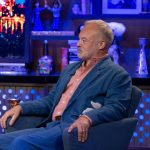SEOUL — South Korea’s leading opposition figure, Lee Jae-myung, officially launched his presidential campaign on Thursday, emerging as the frontrunner in a snap election triggered by the dramatic removal of President Yoon Suk Yeol from office last week.
Speaking in a video address, Lee, the former head of the liberal Democratic Party and a veteran political campaigner, vowed to “heal a bitterly divided nation” by reviving the economy and bridging South Korea’s growing wealth gap. His announcement marks a significant moment in a volatile political landscape, following Yoon’s impeachment and formal ousting by the Constitutional Court over a controversial martial law declaration in December.
Lee, who narrowly lost the 2022 presidential race to Yoon, had stepped down as party chairman earlier this month to prepare for the by-election, scheduled for 3 June. He is widely expected to win the Democratic Party’s nomination with little resistance. Another prominent contender, Gyeonggi Governor Kim Dong-yeon, a former finance minister, also declared his intention to run, setting up a potential contest between two economic reformers.
In his campaign message, Lee pointed to Yoon’s downfall as a reflection of deeper social and political fissures within South Korea. “We must recognise that Yoon’s reckless martial law move was not just a personal failing, but a symptom of a society fractured by inequality,” he said. “We have more than ever before, but wealth is far too concentrated in the hands of a few.”
Lee pledged a government-led economic agenda, promising large-scale investments in technology and innovation, as well as efforts to nurture home-grown talent. “With the right direction, South Korea can achieve growth not just through the private sector but through the state’s active role in R&D and industrial development,” he said.
Lee also addressed foreign policy, signalling continuity in Seoul’s strategic alliances. He reaffirmed his support for strong ties with the United States and trilateral cooperation with Japan, while stressing that “national interest must come first” in all diplomatic engagements.
Long considered a maverick, Lee is both celebrated and criticised for his combative political style. A former mayor and governor, he built his reputation as a straight-talking reformer and champion of the working class. His detractors, however, accuse him of being a populist with a penchant for demonising his rivals and offering big promises without clear funding mechanisms.
Kweon Seong-dong, floor leader of the conservative People Power Party (PPP) and a close Yoon ally, warned of deeper divisions if Lee is elected. “Lee Jae-myung will rule with vengeance, dogmatism, and deepen the polarisation we already suffer from,” he said.
Lee’s campaign is also clouded by ongoing legal woes. He faces five separate court cases, including charges of corruption and abuse of power – all of which he denies and claims are politically motivated.
Meanwhile, the ruling PPP is in disarray. Yoon’s impeachment has split the party between his loyalists and reformist factions, with at least 10 figures expected to vie for the conservative nomination.
Among them, former PPP leader Han Dong-hoon, who has emerged as a vocal critic of Yoon’s presidency, is expected to announce his candidacy imminently. Other declared candidates include Daegu Mayor Hong Joon-pyo, ex-Labour Minister Kim Moon Soo – a staunch Yoon supporter – and veteran MP Ahn Cheol-soo, a former software entrepreneur and multiple-time presidential contender.
Seoul’s current mayor, Oh Se-hoon, is also widely tipped to enter the race in the coming days.
With the election just weeks away, the battle lines are being drawn. As the nation reels from the unprecedented fall of a sitting president, South Koreans now face a defining political moment – one that could reshape the republic’s future for the next five years.







